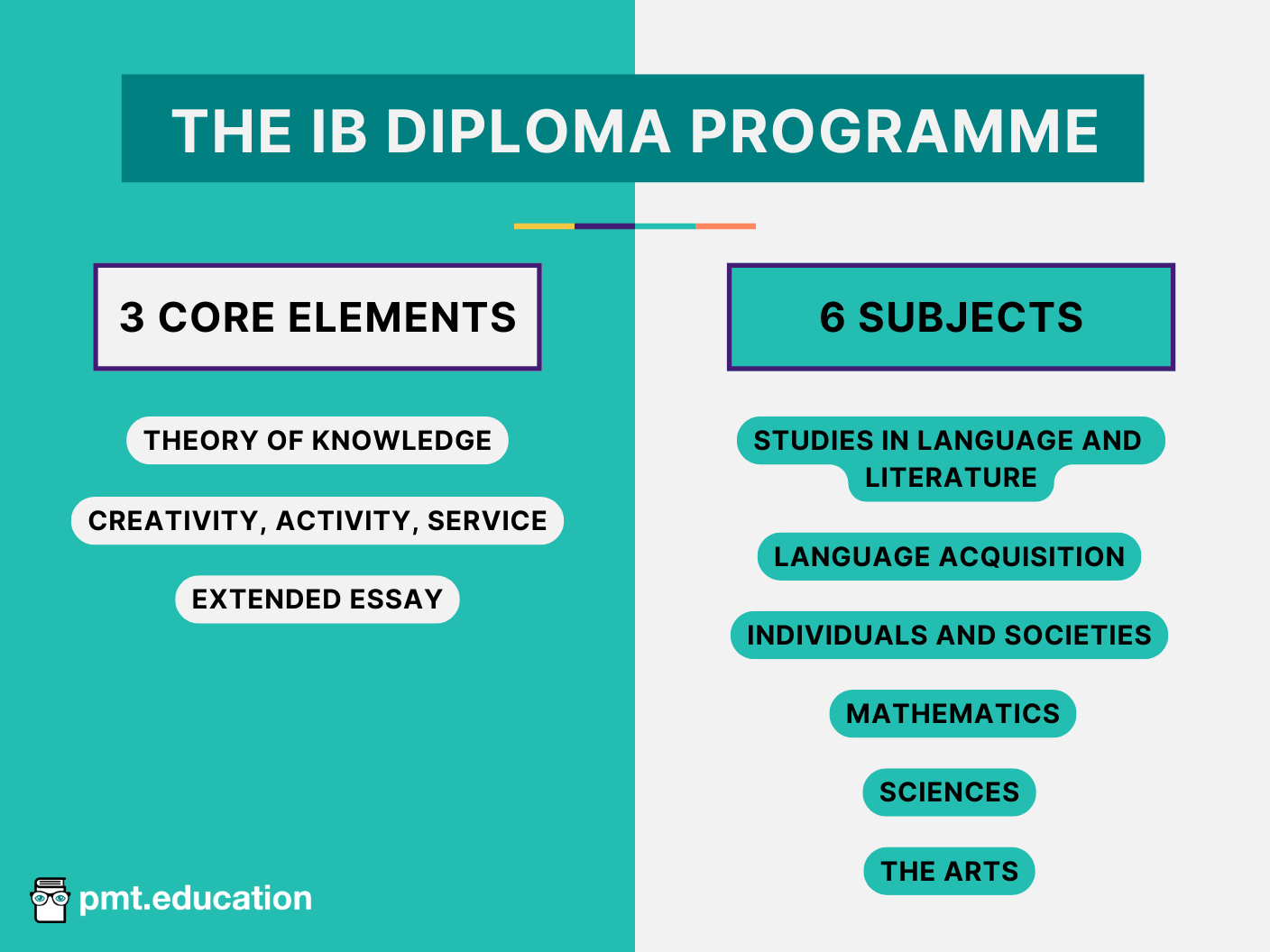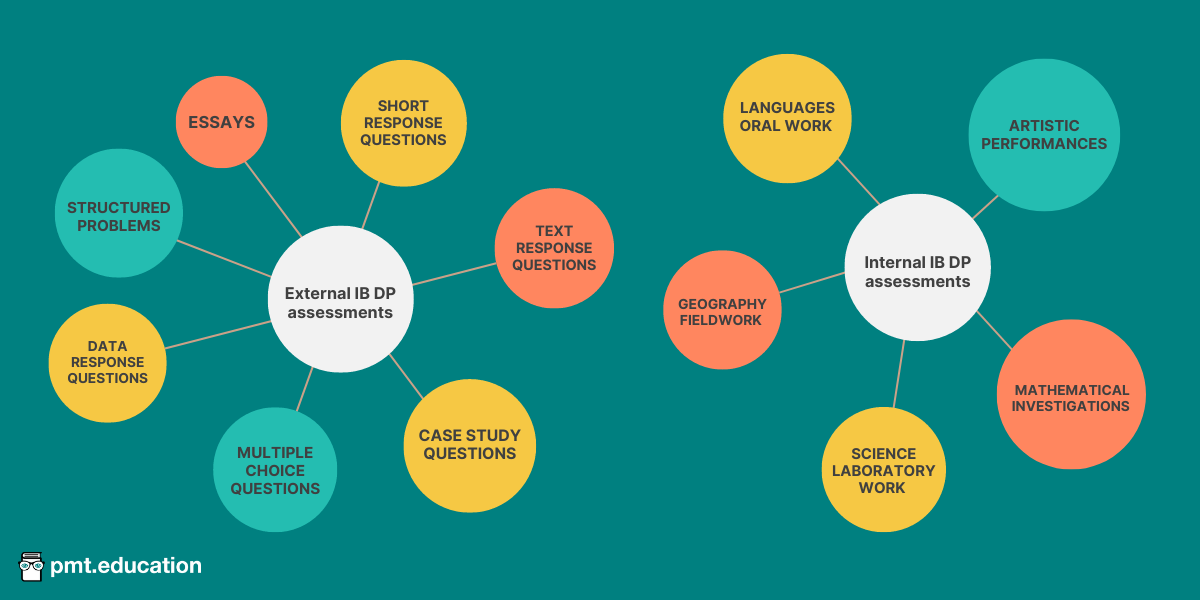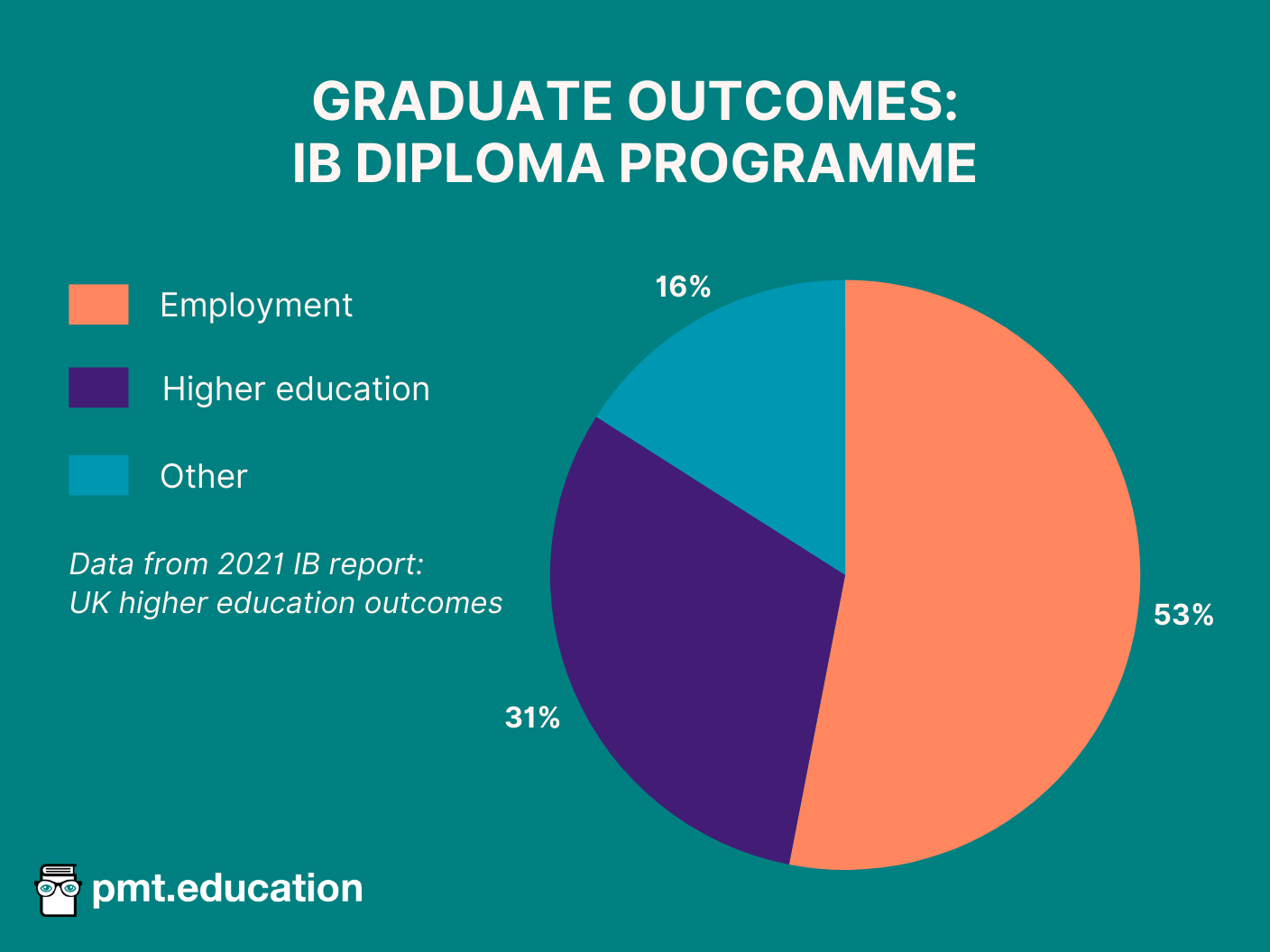Contents:
Qualification Level: Level 3
Age Group: 16+ years
Cost: Free in state schools
Skills Developed: Academic skills, critical thinking, cultural understanding
Learning Environment: Classroom-based
The International Baccalaureate (IB) is an organisation that offers four educational programmes for students aged 3-19 years: the Primary Years Programme, Middle Years Programme, Diploma Programme, and Career-related Programme. Renowned worldwide, these programmes provide a holistic approach to education by encouraging students to connect knowledge across various subject areas.
This article explores the IB Diploma Programme (DP) as an option in STEM education. However, another noteworthy alternative is the IB Career-related Programme (CP). Whilst the DP focuses on building your breadth and depth of knowledge, the CP is designed to prepare you for a specific career or field of study. If this sounds more suited to you, our article on the IB Career-related Programme can help.
What is the IB Diploma Programme?
The IB DP is a certification for students in their last two years of secondary education in an IB World School. It is an alternative to A Levels and BTECs that encourages students to keep their future options open by studying a broader range of traditional academic subjects.
The IB Diploma Programme syllabus
How is the IB syllabus structured?
The IB DP syllabus is split into six IB subject groups and the Diploma Programme core (DP core).
The six subject groups available are:
- Studies in language and literature
- Language acquisition
- Individuals and societies
- Sciences
- Mathematics
- The arts
Students must choose one subject from each of groups 1-5. The final subject can be selected from any of groups 1-6, meaning ‘the arts’ is optional. The exact subject choices available to you from the syllabus will depend on the school you attend.
The IB DP syllabus offers two levels for each subject: Standard Level (SL) and Higher Level (HL). Either three or four subjects can be taken at HL, with the remaining subjects at SL.
The DP core consists of three mandatory components designed to encourage students to apply their knowledge and skills in practical ways:
- Theory of Knowledge (TOK): An extended written project, encouraging you to question the basis of your knowledge and develop your critical thinking skills
- Creativity, activity, service (CAS): Students take extracurricular activities and a voluntary community service project
- The extended essay: A 4000-word extended written project surrounding an in-depth, self-directed piece of research on a topic of your choosing

Which subjects in the IB DP are STEM?
The science and mathematics subject groups form part of a STEM education. Therefore, if you wish, you can dedicate half of your IB DP subjects to STEM. In addition, your extended essay can be on any topic you like, so could be STEM-focused.
The subjects on offer within the mathematics group are:
- Mathematics: analysis and approaches
- Mathematics: applications and interpretation
The subjects available within the science group are:
- Biology
- Computer Science
- Chemistry
- Design Technology
- Physics
- Sports, Exercise and Health Science

The following are some examples of the IB subjects chosen by students, based on their STEM interests and career desires.
A future in engineering:
- Language and literature: English A: Language and literature
- Language acquisition: German B
- Individuals and societies: Economics
- Sciences: Physics
- Mathematics: Analysis and approaches
- The arts: Music
- Extended essay: Physics
A future in medicine:
- Language and literature: Spanish A: Language and Literature
- Language acquisition: English B
- Individuals and societies: History
- Sciences: Chemistry
- Sciences: Biology
- Mathematics: Analysis and approaches
- Extended essay: Biology
While you can’t focus exclusively on STEM subjects in the IB DP, the skills gained from other disciplines provide valuable perspectives on STEM. This interdisciplinary approach is highly valued by higher education institutions and employers, especially in the engineering sector.
IB exams and assessment methods
What are the assessments for the IB Diploma?
Being a global programme, the IB DP assesses your intercultural, as well as academic skills. These skills are assessed using both external (marked by IB examiners) and internal (marked by teachers and moderated by the IB) assessment .
- The DP core TOK and extended essay are both written work, marked externally
- The DP core CAS is not marked but requires internal authentication of participation
- The IB DP subjects are assessed using exams, marked both externally and internally

What are the IB Diploma requirements?
Each DP subject is graded on a scale from 1-7. The DP core is graded on a scale from 1-3. Overall, students can gain a maximum possible score of 45. Your final grade depends on overall performance across each IB subject, unlike with A Levels. This means lower marks in SL courses can be combined with higher marks in HL courses to give a high overall score.
The IB exams compare your final grade to a set standard mark, as opposed to its ranking within your cohort, as is done with A Levels.
To receive the IB Diploma qualification:
- You must obtain a minimum score of 24 points
- At least 12 of your points must be from HL subjects
- At least 9 of your points must be from SL subjects
- You must ‘pass’ the core DP*
*A pass is a point for both the TOK and extended essay (points are not awarded for CAS).
To receive a bilingual IB Diploma you must either:
- Take two languages from the language and literature group
You must receive a grade 3 or higher in these language - Take your individuals and societies subject in a different language
You must receive a grade 3 or higher in both this subject group and your ‘language and literature’ group
Example of IB qualification grading
Where can the IB Diploma Programme lead?
The IB DP can open doors to a wide range of opportunities, including university, vocational study, and direct employment in STEM. The following data from a 2021 IB study illustrates the proportions of students pursuing each of these paths.

IB DP benefits for STEM university applications
- The IB DP is globally recognised, allowing students to apply to universities around the world without being limited by location.
- The DP’s broad curriculum, which includes more subjects than many equivalent qualifications, keeps university options open.
- The IB DP encourages independent learning, equipping students with the skills needed for the self-directed nature of university STEM degrees.
- Learning a second language, which is part of the DP, has been linked to higher achievement in higher education.
- Research indicates that IB graduates are more likely to be enrolled at a top 20 university than those with equivalent qualifications.
IB DP benefits for a career in STEM
The IB DP also positions you as a strong contender in the competitive working world of STEM.
- The DP fosters the development of skills highly sought after by employers more effectively than its equivalent qualifications. Skills include critical thinking, independent learning, and global awareness.
- Its standardised grading system is recognised worldwide, enhancing your prospects of finding work abroad.
- The DP keeps career options open. IB DP graduates have directly entered roles across all of STEM – from biotechnology and healthcare to data science and analytics.
If you know which STEM career interests you the most, you may benefit more from the IB Career-related Programme.
IB DP benefits for vocational qualifications in STEM
The IB DP benefits students applying to vocational courses by providing them with the unique opportunity to gain certification for extracurricular activities and community service projects through its CAS (Creativity, Activity, Service) component. These projects are an opportunity to apply academic knowledge to practical roles, as is required for vocational education courses.
Vocational qualifications include:
- Business and Technology Education Council qualifications (BTECs)
- National Vocational Qualifications (NVQs)
- T Levels
- Apprenticeships

Is the IB Diploma Programme worth it?
Absolutely. If you’re looking for a programme that fosters not only academic excellence but also intellectual, emotional, and ethical development, the IB DP could be an excellent choice. Its global, holistic approach helps create well-rounded and culturally aware individuals who can stand out in any environment, not just STEM.
FAQs
What does IB stand for?
IB stands for International Baccalaureate.
What if my school doesn’t offer the IB Diploma Programme?
Read articles on both the International Baccalaureate Diploma Programme (IB DP) and the qualifications your school offers. This will help you understand the differences and make an informed decision. If you are sure your school’s qualification isn’t for you, there are several things you can do:
- Attend open days at other schools to gain greater insight into the IB DP and any other qualifications available in your area
- Talk to teachers, careers advisors, and carers about your options. Many students find this is a stressful time, so it’s important to get support.
- Consider whether changing schools or changing qualifications matters more to you. Changing schools may mean leaving behind friends and familiar teachers, but it can also open new opportunities and help you find a programme better suited to your needs.
- Partake in activities to develop the same skills you would gain from the IB Diploma:
- Join a local sports team
- Volunteer for a local charity
- Embark on a Duke of Edinburgh Award (equivalent to the CAS)
- Write an EPQ to gain experience in research (similar to the extended essay)
- Enter essay competitions
- Complete a Core Maths course or Free Standing Maths Qualification instead of a maths subject in school
Where can I find the best IB schools?
Generalised rankings can be a good place to start enquiring about the best International Baccalaureate (IB) schools, but are of little value on their own. Your personal needs and priorities must be considered to find the best school for you. This can be achieved using the IB schools finder tool to identify potential schools.
Separately search for reviews and rankings of each, that highlight the school’s strengths in different areas:
- Student satisfaction
- Graduate outcomes
- Boarding/Day school
- Retention rates
- Cultural diversity
- School Resources
- Academic performance
- Facilities
Do I have to pay to study the IB Diploma Programme?
Whether you have to pay to study the International Baccalaureate Diploma Programme (IB DP) depends on the type of school you attend. In many countries, state schools offer the IB DP free of charge, although there may be additional costs for materials, exams, and activities. Private and international schools typically charge tuition fees, which can vary widely based on the school’s location, reputation, and facilities. However, many schools provide financial aid and scholarships to help cover these costs.
What are the entry requirements for the IB Diploma Programme?
To be eligible to take the International Baccalaureate Diploma Programme (IB DP), students must meet the following requirements:
- Be in the last two years of secondary education (although flexible entry ages can sometimes be discussed with your specific school)
- Attend an IB World School
- Meet the specific grade requirements as set out by the individual school (for example, grades 5-9 are often required if a student has taken GCSEs)
Should I take the IB or A Levels?
Both the International Baccalaureate Diploma Programme (IB DP) and A Levels are respected qualifications that can lead you to higher education, vocational education, and employment in STEM. To decide which is right for you, check out our article that compares A Levels with the IB DP. Consider which programme best aligns with your future goals.
Which universities accept the IB Diploma Programme?
The IB Diploma Programme (IB DP) is recognised and accepted by most universities worldwide, including many prestigious institutions such as Harvard, Yale, and Oxford University, which often have a higher intake of IB DP graduates. To check if the universities you are interested in accept the IB DP, visit the official IB website or the specific university’s admissions page.
IB points to UCAS points: How can I convert between the two?
The value of a student’s overall grade (the ‘tariff’) varies from country to country, meaning it can be harder to meet entry requirements in some countries, more than others.
For UK universities, UCAS has published its tariff system for IB grades, allowing you to see how many UCAS points you can get for each grade.


Comments